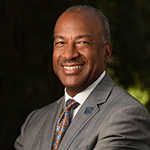Clinical Laboratory Science Training Program
Clinical Laboratory Science (CLS) is a profession that combines the challenges and rewards of medicine and science with service to humanity. The CLS Training Program at UC Davis Health provides trainees with 12-month clinical laboratory science training. After receiving the graduation certificate and successfully passing the ASCP Board of Certification Exam, Medical Laboratory Scientist, MLS (ASCP), the CLS trainee will receive a California license and be eligible to work in a California clinical laboratory. Clinical laboratory scientists provide an important service to the health care team in the detection, diagnosis, treatment, and prevention of disease.
UC Davis Health Clinical Lab tours and program information sessions are offered quarterly.
For reservations and additional information, please contact:
Sharon McGoldrick M.Ed., C.L.S.
916-731-3800
email: skmcgoldrick@ucdavis.edu
Outcome Measures
The UC Davis Health Department of Pathology and Laboratory Medicine, in compliance with NAACLS standards, demonstrate student core competencies through the attainment of established goals and objectives. The UC Davis Health Department of Pathology and Laboratory Medicine is proud of its 100% student ASCP examination pass rate over the past ten years which has consistently placed the UC Davis Health CLS Program within the top 10% nationally.
| Training Year | Graduation Rate | Board of Certification First-time Pass Rate |
Job Placement |
| 2009-2019 | 100% | 100% | 100% |
| 2020 | 100% | 100% | 100% |
| 2021 | 100% | 100% | 100% |
| 2022 | 100% | 100% | 100% |
| 2023 | 100% | 100% | 100% |
Mission Statement
The Clinical Laboratory Science Training program is dedicated to providing trainees with the knowledge, skills, and abilities needed to excel as entry level, competent clinical laboratory scientists through our instruction and own example as practicing professionals. Currently focusing on training students with ties to the greater Sacramento area or rural training partner sites located in Placerville, CA and Modesto, CA.
The goals of the UC Davis Health CLS Training Program are to:
- Provide trainees with the best quality education in all aspects of clinical laboratory science
- Promote patient safety and quality standards
- Promote expanded roles and contributions of clinical laboratory professionals to the healthcare team
- Provide leadership in educating other health personnel and community populations
- Promote professionalism, honesty, integrity, and compassion

 LeShelle May
LeShelle May Chancellor Gary May
Chancellor Gary May